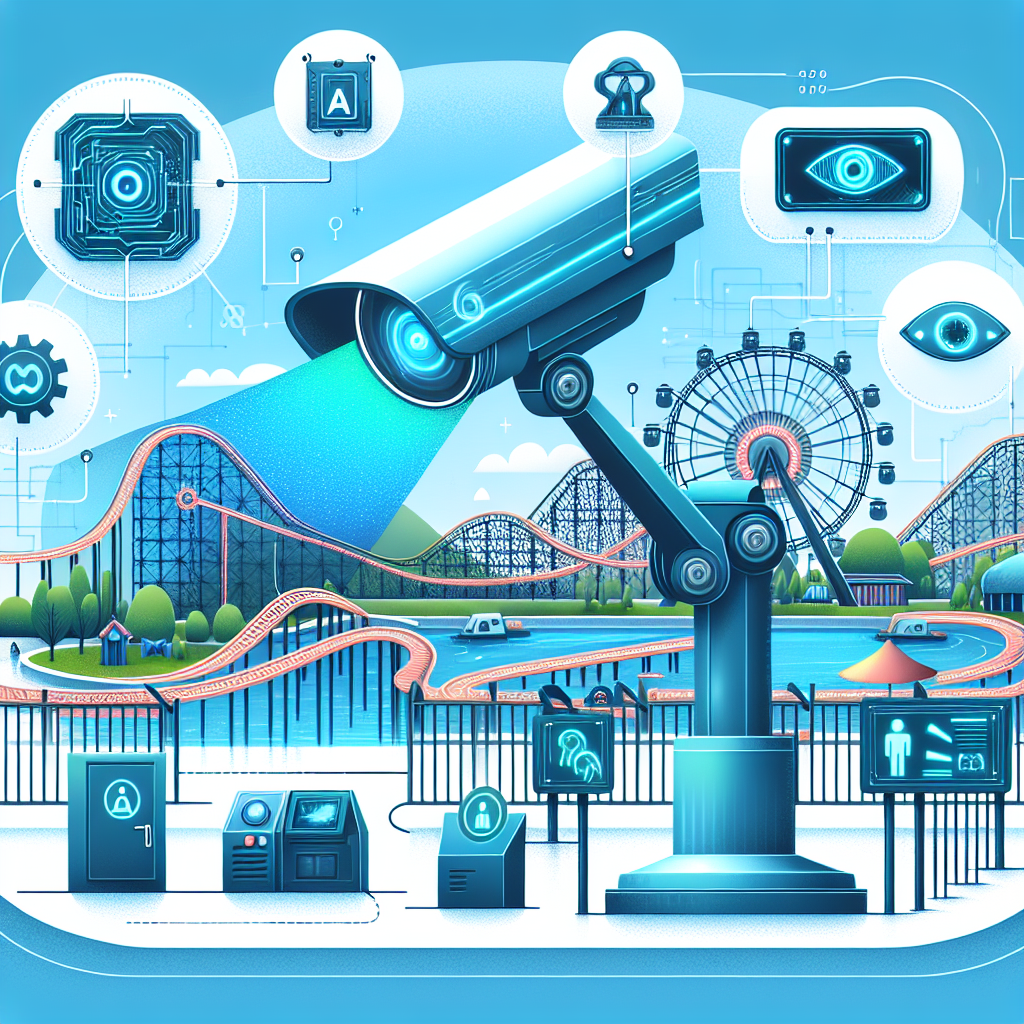AI in Theme Park Safety and Security Measures
In recent years, theme parks have been increasingly turning to artificial intelligence (AI) to enhance their safety and security measures. With the rise of technology, theme parks are looking for innovative ways to ensure the safety of their guests and employees. AI offers a range of benefits that can help theme parks improve their security measures, from preventing accidents to detecting suspicious behavior. In this article, we will explore how AI is being used in theme park safety and security measures, as well as the potential benefits and challenges of implementing this technology.
Benefits of AI in Theme Park Safety and Security Measures
There are several benefits to using AI in theme park safety and security measures. One of the primary advantages is the ability to prevent accidents before they happen. AI-powered systems can analyze data in real-time to identify potential risks and alert park staff to take action. For example, AI can monitor crowd levels and detect overcrowding in certain areas of the park, allowing staff to intervene and prevent accidents or injuries.
AI can also be used to enhance surveillance and monitoring capabilities in theme parks. AI-powered cameras can be programmed to detect suspicious behavior, such as individuals loitering in restricted areas or acting aggressively towards others. This can help security personnel respond quickly to potential threats and ensure the safety of guests and employees.
Another benefit of using AI in theme park safety and security measures is the ability to streamline operations and improve efficiency. AI-powered systems can automate routine tasks, such as monitoring security cameras or analyzing visitor data, allowing staff to focus on more critical aspects of their job. This can help theme parks reduce costs and improve overall safety and security measures.
Challenges of Implementing AI in Theme Park Safety and Security Measures
While there are many benefits to using AI in theme park safety and security measures, there are also some challenges that come with implementing this technology. One of the primary challenges is the potential for false alarms and inaccuracies in AI-powered systems. AI algorithms rely on data to make predictions and decisions, and if this data is incomplete or inaccurate, it can lead to false alarms or missed threats. Theme parks must ensure that their AI systems are regularly updated and trained with accurate data to minimize these risks.
Another challenge of implementing AI in theme park safety and security measures is the potential for privacy concerns. AI-powered systems often rely on surveillance cameras and other monitoring devices to collect data on guests and employees. This can raise concerns about privacy and data security, especially as AI technology becomes more advanced and capable of tracking individuals’ movements and behaviors. Theme parks must be transparent about their use of AI and ensure that they are complying with data protection regulations to protect the privacy of their guests.
FAQs
Q: How is AI used in theme park safety and security measures?
A: AI is used in theme park safety and security measures in a variety of ways, including preventing accidents, enhancing surveillance capabilities, and improving operational efficiency. AI-powered systems can analyze data in real-time to identify potential risks and alert park staff to take action. AI can also be used to detect suspicious behavior, such as individuals loitering in restricted areas or acting aggressively towards others, helping security personnel respond quickly to potential threats.
Q: What are the benefits of using AI in theme park safety and security measures?
A: The benefits of using AI in theme park safety and security measures include preventing accidents before they happen, enhancing surveillance capabilities, and improving operational efficiency. AI-powered systems can help theme parks reduce costs and improve overall safety and security measures by automating routine tasks and analyzing data in real-time to identify potential risks.
Q: What are the challenges of implementing AI in theme park safety and security measures?
A: Some of the challenges of implementing AI in theme park safety and security measures include false alarms and inaccuracies in AI-powered systems, as well as privacy concerns. AI algorithms rely on data to make predictions and decisions, and if this data is incomplete or inaccurate, it can lead to false alarms or missed threats. Theme parks must ensure that their AI systems are regularly updated and trained with accurate data to minimize these risks. Additionally, there are concerns about privacy and data security as AI technology becomes more advanced and capable of tracking individuals’ movements and behaviors.
In conclusion, AI technology has the potential to revolutionize theme park safety and security measures by enhancing surveillance capabilities, preventing accidents, and improving operational efficiency. While there are challenges to implementing AI in theme parks, such as false alarms and privacy concerns, the benefits of using this technology far outweigh the risks. As theme parks continue to leverage AI to enhance their safety and security measures, guests can expect a safer and more enjoyable experience at their favorite attractions.

